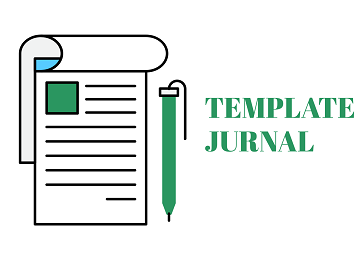SOSIALISASI TEKNIK PEMBERDAYAAN MASYARAKAT BIDANG KESEHATAN PADA KAUM MUDA BERBASIS LITERASI DIGITAL
SOCIALIZATION OF HEALTH COMMUNITY EMPOWERMENT TECHNIQUES IN YOUTH BASED ON DIGITAL LITERATURE
Abstract
Kaum muda menjadi salah satu agen perubahan di masyarakat dan menjadi potensi untuk menyebarluaskan pesan maupun kebiasaan untuk menciptakan lingkungan masyarakat sehat. Berdasarkan hal tersebut, tujuan kegiatan ini adalah meningkatkan pemahaman kaum muda khususnya mahasiswa bidang kesehatan mengenai teknik pemberdayaan masyarakat melalui pemanfaatan akses digital guna mendukung literasi kesehatan masyarakat yang lebih optimal. Metode pelaksanaan sosialisasi teknik pemberdayaan masyarakat berbasis digital menggunakan pendekatan model komunikasi Laswell dengan tahapan 1) persiapan, 2) pelaksanaan dan pengembangan metode sosialisasi teknik pemberdayaan masyarakat digital, 3) diskusi dan tanya jawab, 4) evaluasi berbasis permainan digital. Adapun hasil kegiatan yaitu pengetahuan teknik dan metode pemberdayaan masyarakat bebasis literasi digital sudah berada di atas 76,76% yaitu mengenai konsep dasar, tahapan pelaksanaan, aplikasi digital dan keterbatasan pemberdayaan masyarakat berbasis digital. Perlu di lakukan intervensi berupa praktik pelaksanaan pemberdayaan masyarakat di bidang kesehatan pada berbagai tatanan promosi kesehatan agar kaum muda memiliki pengalaman langsung dalam melaksanakan pemberdayaan masyarakat. Diharapkan adanya kolaborasi dari berbagai pihak yaitu civitas akademik, sektor-sektor terkait agar mendukung optimalisasi peran kaum muda dalam meningkatkan derajat kesehatan masyarakat.
Kata kunci: Kaum muda, pemberdayaan masyarakat, literasi digital
ABSTRACT
Young people are one of the agents of change in society and have the potential to spread messages and habits to create a healthy community environment. Based on this, the purpose of this activity is to increase the understanding of young people, especially students in the health sector, regarding community empowerment techniques through the use of digital access to support more optimal public health literacy. The method of implementing the socialization of digital-based community empowerment techniques uses the Laswell communication model approach with the stages by 1) preparation, 2) implementation and development of methods for socializing digital community empowerment techniques, 3) discussion and question and answers, 4) digital game-based evaluation. The results of the activity, namely knowledge of techniques and methods of community empowerment based on digital literacy are already above 76,76%, namely regarding basic concepts, stages of implementation, digital applications, and limitations of digital-based community empowerment. Interventions need to be carried out in the form of implementing community empowerment practices in the health sector in various health promotion settings so that young people have direct experience in implementing community empowerment. It is hoped that there will be collaboration from various parties, namely the academic community, related sectors in order to support the optimization of the role of young people in improving the health status of the community.
Keywords: Young people, community empowerment, digital literacy
Downloads
References
[2] UNESCO, “Literacy Rates Continue to Rise from One Generation to the Next,” Unesco, vol. 2016, no. 45, p. 5, 2017, [Online]. Available: http://www.unido.org/fileadmin/media/documents/pdf/EEU_Training_Package/Module4.pdf
[3] D. Nutbeam, “Health literacy as a public health goal: A challenge for contemporary health education and communication strategies into the 21st century,” Health Promot. Int., vol. 15, no. 3, pp. 259–267, 2000, doi: 10.1093/heapro/15.3.259.
[4] S. Morton, D. Pencheon, and N. Squires, “Sustainable Development Goals (SDGs), and their implementation,” Br. Med. Bull., vol. 124, no. 1, pp. 81–90, 2017, doi: 10.1093/bmb/ldx031.
[5] C. Varghese, B. Nongkynrih, and B. Mikkelsen, “Learning by Doing: Accelerate Towards the NCD Target in SDG Through Primary Healthcare,” Int. J. Heal. Policy Manag., vol. 2019, no. x, pp. 1–3, 2021, doi: 10.34172/ijhpm.2021.96.
[6] K. Czabanowska and E. Kuhlmann, “Public health competences through the lens of the COVID-19 pandemic: what matters for health workforce preparedness for global health emergencies,” Int. J. Health Plann. Manage., vol. 36, no. January, pp. 14–19, 2021, doi: 10.1002/hpm.3131.
[7] A. Miroshnichenko, “Media and Responsibility for Their Effects: Instrumental vs. Environmental Views,” Laws, vol. 10, no. 2, p. 48, 2021, doi: 10.3390/laws10020048.
[8] Adelina Yuristia, “Pendidikan Sebagai Transformasi Kebudayaan,” J. Ilmu Sos. dan Budaya, vol. 2, no. 1, pp. 1–13, 2018, [Online]. Available: http://jurnal.uinsu.ac.id/index.php/ijtimaiyah/article/view/5714
[9] R. H. Ifroh, “Pemanfaatan Aplikasi Virtual Meeting dan Permainan Digital pada Webinar Edukasi PHBS Masyarakat di Masa Pandemi Covid-19,” Abdimas Mulawarman J. Pengabdi. Kpd. Masy., vol. 1, no. 1, pp. 41–49, 2021.
[10] S. Renata, Health Communication: From Theory to Practice. 2007.
[11] R. H. Ifroh, D. L. Setyowati, T. Asrianti, W. Rahman, F. K. Masyarakat, and U. Mulawarman, “Partisipasi Edukasi Berbasis Digital Dalam Upaya Pencegahan COVID-19 Saat Bekerja Pada Pengendara Ojek Online,” JMM (Jurnal Masy. Mandiri), vol. 5, no. 3, pp. 855–868, 2021.
[12] R. H. Ifroh and T. Asrianti, “Health Literacy, Media Exposure, and Behavior among Young Adults during the COVID-19 Pandemic,” J. Ilmu Kesehat. Masy., vol. 11, no. November, pp. 223–236, 2020.
[13] R. Meilina, R. Dewi, and P. Nadia, “Sosialisasi pemanfaatan tanaman obat keluarga (toga) untuk meningkatkan imun tubuh di masa pandemi covid-19,” J. Pengabdi. Masy., vol. 2, no. 2, pp. 89–94, 2020, [Online]. Available: https://jurnal.uui.ac.id/index.php/jpkmk/article/view/1141
[14] H. Herniwanti, O. Dewi, J. Yunita, and E. P. Rahayu, “Penyuluhan Perilaku Hidup Sehat Dan Bersih (PHBS) dan Gerakan Masyarakat Hidup Sehat (GERMAS) kepada Lanjut Usia (LANSIA) Menghadapi Masa Pandemi Covid 19 dan New Normal dengan Metode 3M,” J. Abdidas, vol. 1, no. 5, pp. 363–372, 2020, doi: 10.31004/abdidas.v1i5.82.













